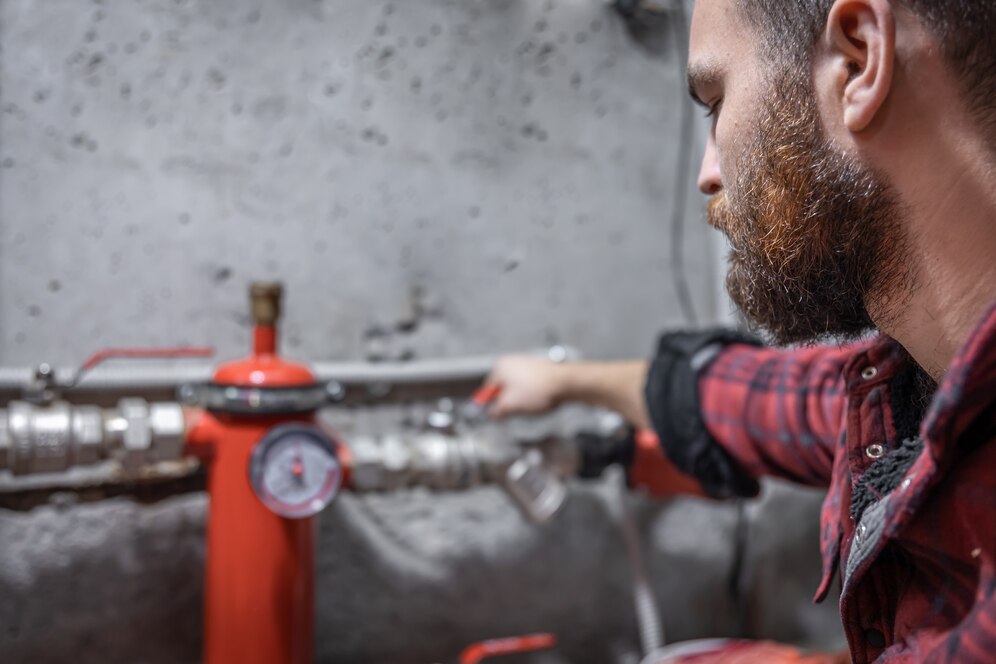If you’re looking to upgrade your kitchen, a gas stove offers numerous benefits that can significantly enhance your cooking experience. Additionally, ensuring expert Gas pipeline installation is crucial to maximizing these benefits and ensuring safety.
The Benefits of a Gas Stove
1. Enhanced Cooking Precision
A gas stove allows for immediate heat adjustments, offering precise control over cooking temperatures. This precision is essential for preparing dishes that require exact heat levels. Unlike electric stoves, where you wait for the burner to heat up or cool down, a gas stove responds instantly to your changes.
2. Faster Cooking Times
One of the most notable advantages of gas stoves is their speed. Gas burners heat up quickly and cook food faster than their electric counterparts. This efficiency is especially beneficial in busy kitchens where time is of the essence. The direct flame of a gas stove provides consistent and rapid heating.
3. Energy Efficiency and Cost Savings
Gas stoves typically offer better cost efficiency compared to electric stoves. Natural gas is generally less expensive than electricity, which can lead to lower energy bills over time. This makes a gas stove preferable for kitchens.
4. Reliable Operation During Power Outages
Gas stoves remain functional during power outages, unlike electric stoves. This reliability is particularly valuable in areas prone to electrical issues or during emergencies. With a gas stove, you can continue cooking even when the power goes out.
The Importance of Expert Installation
1. Ensuring Safety
Proper installation is crucial for safety when dealing with gas stoves. Gas lines must be correctly connected to avoid leaks, which can be hazardous. Professional installation ensures that all connections are secure and compliant with safety standards.
2. Optimizing Performance
Professionals can fine-tune your gas stove to ensure optimal performance. They adjust the burners and gas flow to ensure even heat distribution and efficient operation. This professional adjustment helps prevent uneven cooking and enhances the stove’s overall efficiency.
3. Compliance with Local Regulations
Gas stove installation must adhere to local building codes and regulations. Professional installers know the local regulations and make sure your installation complies with all legal requirements. This compliance helps avoid potential fines and ensures the safety of your kitchen.
4. Preventing Future Issues
A correctly installed gas stove reduces the risk of future problems Expert installation prevents common problems like gas leaks and uneven heating.
Gas Stoves vs. Electric Stoves: A Comparative Analysis
1. Heat Distribution
Gas stoves offer better heat distribution compared to electric stoves. The open flame of a gas burner distributes heat evenly across the bottoms of utensils. This even heating results in more consistent cooking results.
2. Control and Flexibility
Gas stoves provide immediate control over heating. Electric stoves take time to adjust, which can be a disadvantage when quick changes are needed.
3. Cost Considerations
While the initial cost of a gas stove may be higher than an electric stove, the long-term savings on energy bills often outweigh the upfront investment. Gas is typically cheaper than electricity, leading to cost savings over time.
Maintenance and Care for Your Gas Stove
1. Regular Cleaning
Keeping your gas stove clean is essential for maintaining its performance. Regularly clean the burners and grates to remove dirt and ensure efficiency. This helps in extending the life of your stove.
2. Checking for Gas Leaks
Regularly inspect connections and fittings for gas leaks If you smell gas or suspect a leak, contact a professional immediately. Proper and periodic inspections make sure that your kitchen is safe.
3. Professional Servicing
Get your gas stove serviced every year by an authorised service person. It helps to detect and repair defects before getting complicated and ensure safety.
However, a gas stove and proper installation can enhance your cooking experience and provide long-term value.

